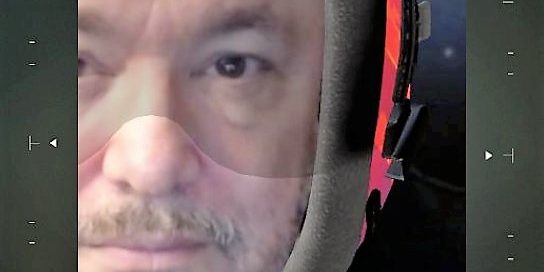LAGUNA NIGUEL, CA – I watched Top Gun: Maverick this evening and enjoyed it a lot. I am in awe of Tom Cruise and his commitment to doing his own stunts. As I understand it, the actors in the film were actually inside F-18s during the filming of their scenes. This gives the movie a startling power as you see them react to g-forces, vibrations, and the quick movements of the aircraft. It is easy to understand why in that high-speed environment, Maverick says: “if you think, you’re dead.”
One of the fun things about the movie is that it supposedly accurately captures the mindset and ethos of being a fighter pilot. At least it does this well enough that the Navy was okay participating in the production and even saw it as a recruiting tool. While the world of grant writing is obviously a safer, more forgiving environment, there are still some lessons in the movie that useful in understanding and practicing lightning-fast grant writing.
Over-the-top self-confidence.
Annoying, arrogant, braggadocios self-confidence is seen as useful among fighter pilots because this attitude is likely to give them hope when things look bleak. Nevertheless, it is useful for those of us who make our livings on the ground because it speeds up the decision-making process. At the very least, it prevents us from wasting time on matters which are not relevant during the writing process including: Am I the right person for this job? Do I know enough to write about this? What will people think about me if I blow this?
Don’t think. Just act.
Maverick’s advice to “Don’t think. Just act.” makes sense if you are in a high-pressure environment where indecision, fear, and doubt all cost you valuable seconds which are better used to save your life and the $52 million aircraft that you are flying in. As grant writers, we can benefit from applying this advice because it can help us do our often complex, new, and original work with greater speed. Nevertheless, we cannot apply this adage carelessly.
After all, part of the reason you can get away with not thinking in any given activity is that you have done it so frequently and practiced it so carefully that taking requisite action seems more like a human reflex than a conscious decision. Getting to this level of unconscious competence requires careful attention to practicing the basics long enough that they become second nature. As a grant-writing instructor, I frequently find myself teaching people who have already been winning grants. Like Maverick, in the movie, I am startled to find that even excellent grant writers are producing work at maybe only 10% of the speed they are capable of working at. In most instances, they have never challenged themselves to write any faster.
Moreover, not thinking does not mean you are not still taking in information. In fact, if you quit thinking, you will be more likely to notice more all at once. Instead of being distracted by your inner dialogue, you are freeing your brain to piece together random bits of information in an effective manner. This is partial while I like writing using voice recognition software. It is a form of writing which is a better match with the speed of my mind. The mind, of course, can move even faster. Lately, for example, I find I am comfortably reading my Kindle at a rate of 900 words per minute, at least triple the speed at which I can write using voice recognition software. It is very difficult to read at 900 words per minute if you are thinking about something else. For most of us, this is identified as the flow state where you are no longer aware of your surroundings because you are completely immersed in the task. Not thinking is a great way to speed up getting into that all-important flow state.
Finally, the adage to just act does not mean to take crazy, undisciplined action. All action should be directed at achieving the goal, or rather the mission. In fact, being focused on the goal or the mission has the effect of making even mistakes and errors that push you in the right direction. This is because awareness of errors only improves your performance if you have a goal to shoot for. This is why it frequently helps to visualize ahead of time what your grant will read like, its tone, its shape, and its content. All of this is helpful in disciplining your mind to focus on the most important task at any given time. The point of high-speed grant writing is that even your mistakes and errors should bring you closer to your goal. In a sense, you should always be throwing your golf clubs in frustration in the direction you are already headed.
Teamwork.
Since grant writers often work in isolation, it helps to remember that we are still part of a team and that teamwork improves the final product. In the movie, Maverick has the pilots he is training play football on the beach as part of a larger effort to instill a team spirit among them. It is an especially engaging form of football where both sides have a ball and both attempt to simultaneously advance their balls while also stopping their opponent’s advance. As a grant writer, you may find team members all around you, even on the funder’s staff. it pays to know your team members, their strengths and weaknesses, and to hold tight to the ones who prove their worth. Ideally, you should have the management skill of quickly picking the right people, putting them in the right spots, and maintaining loyalty toward them.
As you may have noticed, I tried out the call name generator on the official Top Gun Maverick website. You can do it too by clicking on this link.







